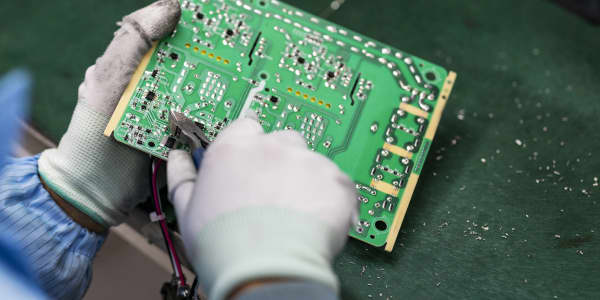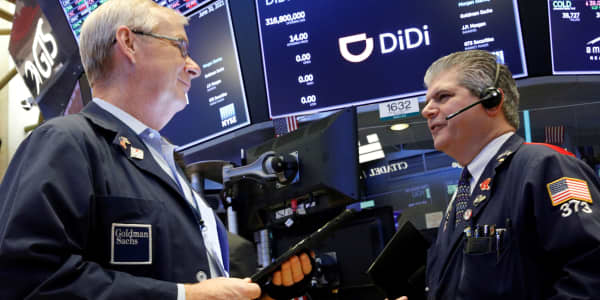
The public will come to accept the applications of artificial intelligence in daily life and embrace conveniences such as facial recognition easing airport security lines, and virtual assistants in homes, according to a vice president at SenseTime — one of the most valuable AI start-ups in the world.
While AI has prompted privacy concerns over possible abuses — such as government surveillance and invasion of privacy, but SenseTime said it does not collect personal data indiscriminately.
"My point is that we don't collect the data or use the data without the permission of users," Leo Liu, group vice-president of SenseTime told CNBC at the East Tech West conference in the Nansha district of Guangzhou, China.
SenseTime — whose investors include Chinese internet giant Alibaba, U.S. chip designer Qualcomm, and Singapore's state investment firm Temasek — is a multi-billion dollar Chinese startup. The company counts Chinese smartphone makers Huawei, Oppo and Xiaomi, as well as Japanese car-maker Honda and U.S. technology firm Nvidia as customers.
The company also provides authorities in Guangzhou and the province of Yunnan with AI-powered facial identification. SenseTime says on its website that Guangzhou's public security bureau has identified more than 2,000 crime suspects since 2017 with the help of the technology.
Everyday conveniences
Citing "fantastic" feedback from their "more than 700 business customers and hundreds of millions of users," Liu said AI is becoming more widely accepted for the conveniences it brings to everyday life.
For example, Google Assistant and Amazon Alexa employ AI to enhance household applications through automation, voice-control and hands-free interactions. This can include controlling the lighting, air-conditioning, televisions through voice activation, or even more complex tasks like setting alarms, playing music and telling the weather and traffic conditions.
Liu offered another example. "Maybe you didn't notice, but a lot of phones – the pictures taken by the phones, the quality is higher and higher. Actually it's not because of the camera itself, but also because of AI technology," he said, adding that while AI has already been running on hundreds of millions of phones, the data itself is not collected by the company.
A.I. outperforms humans
For Liu, a company milestone came in 2014, when AI outperformed human accuracy in facial recognition tests.
"SenseTime is a company focused on visual intelligence and people-learning, so the criteria thing for the technology to be valuable is, of course, that your accuracy must surpass human performance," he said.
Other commonly expressed concerns about AI include automation in the workplace displacing human workers, the advent of so-called "killer robots" — also known as autonomous weapons — and other misuses of artificial intelligence in military applications.
— CNBC's Ryan Browne contributed to this report.




